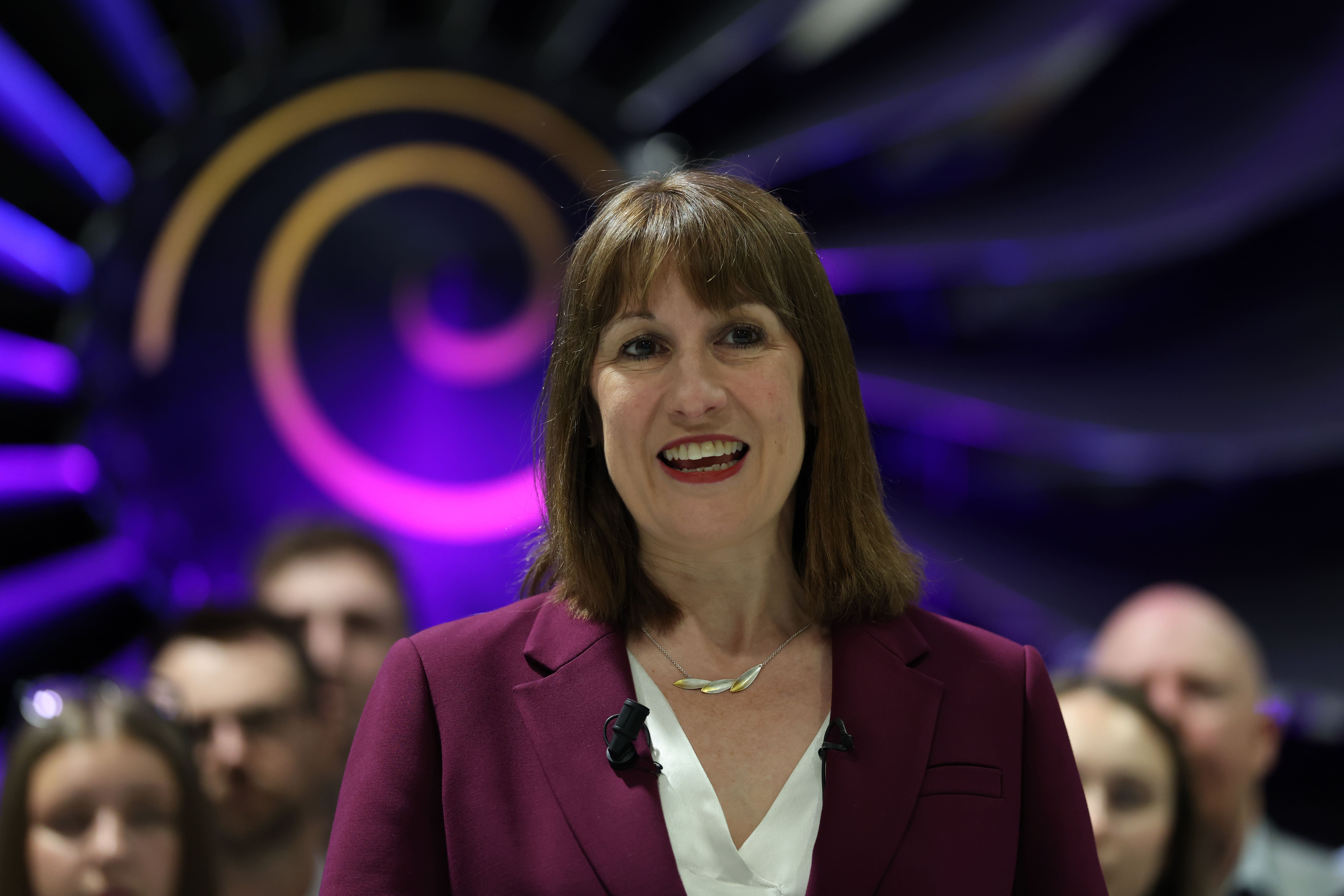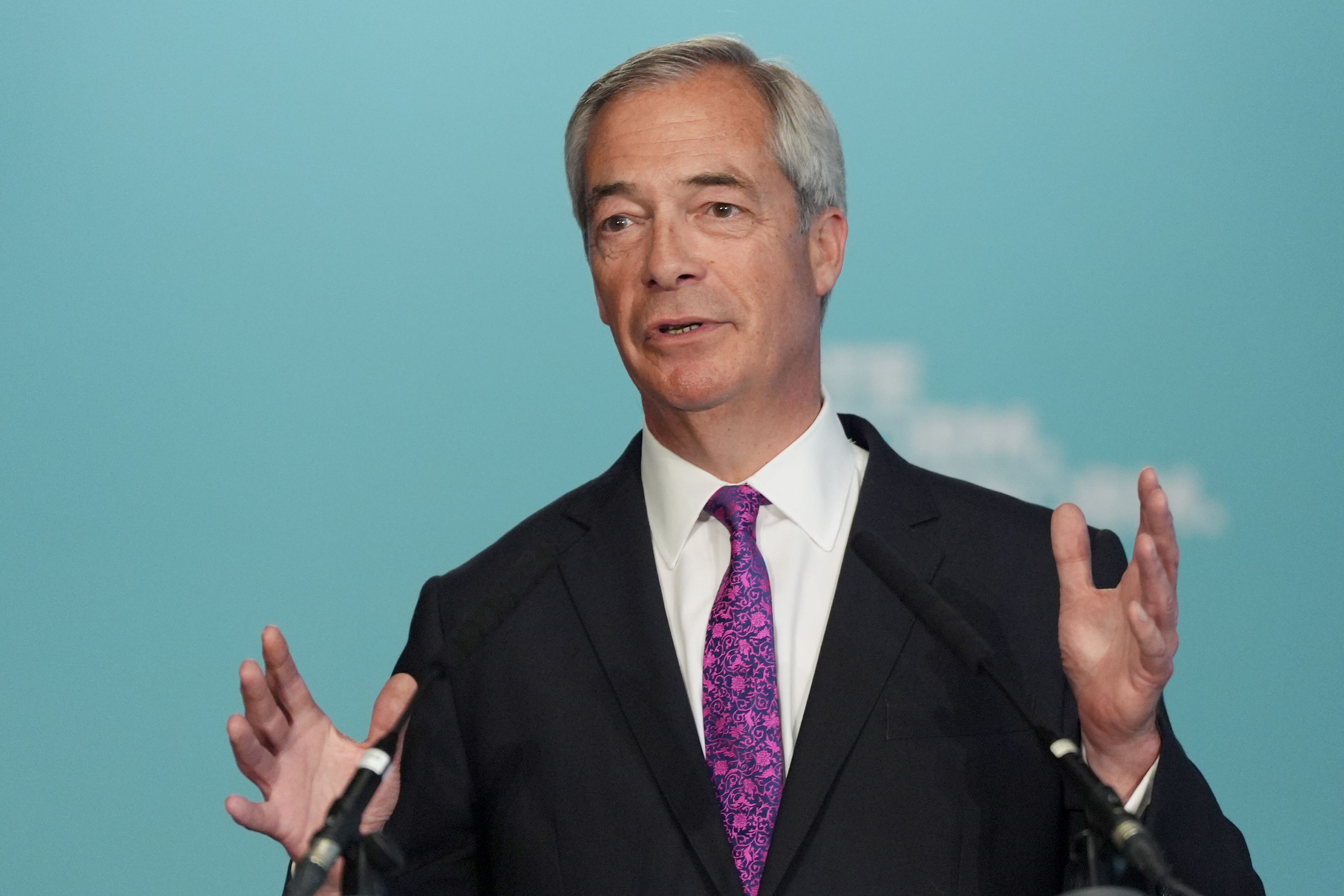Rachel Reeves is facing a revolt from an influential group of Labour MPs amid accusations that she has forgotten about investment in the North and Midlands.
The concerns flagged by the red wall group of MPs come as the chancellor is in a standoff with other cabinet ministers, including deputy prime minister Angela Rayner, over the details of her upcoming spending review.
The red wall areas in the North and Midlands are particularly under threat from the surge in support for Nigel Farage’s Reform UK, which swept to power in county councils earlier this month, including Durham at the expense of Labour.
With the spending review set to be published on 11 June, it is understood that the Treasury has set a deadline of this weekend for government departments to agree spending plans, which will set priorities and budgets until the next election.

Only defence with a spending package of 2.5 per cent of gross domestic product, and health budgets are protected, with others expected to find efficiency savings to help Ms Reeves balance the books.
But already, police chiefs have issued a letter warning that government priorities on crime will be hard to achieve with cuts.
In addition, unions have warned that a 29 per cent pay demand by junior doctors is just the first of a series of tough wage demands coming the government’s way if they want to avoid a series of damaging strikes.
She may also need to find £2bn to restore the winter fuel for pensioners after Sir Keir Starmer ordered a review of the decision to remove it from 10 million people.
The Independent has learnt that it has led to tough conversations between Ms Reeves and her deputy Darren Jones, and other senior ministers.
Clashes have taken place over the budgets of Yvette Cooper’s Home Office; the Department for Environment, Food and Rural Affairs; Ed Miliband’s Department for Energy Security and Net Zero; and Ms Rayner’s Ministry of Housing, Communities and Local Government.
Sources have said that claims Ms Rayner stormed out of a meeting at the weekend, slamming the door, were not true, but they said she is one of the cabinet ministers holding out before making an agreement.
At the top of her priorities is ensuring councils get funding to avoid bankruptcy in local government.
She is also trying to secure cash to renew the affordable homes fund, which runs out in 2026, with housing a top government priority. A £2bn allocation to bridge the gap on the programme has not been enough because Ms Rayner is seeking a longer-term agreement.

Also in Ms Rayner’s portfolio is the former levelling up agenda, which was dropped from her department’s title when Labour came to power after being a priority of Boris Johnson.
But Bassetlaw MP Jo White, who chairs the red wall group of MPs, has raised fears that the attempts to get economic parity have been abandoned and are being ignored.
In an interview with former Labour MPs Gloria De Piero and Jon Ashworth for their Politics Inside Out podcast set to air on Thursday morning, Ms White insisted that the spending review must have an offer for the red wall seats.
Her intervention comes in a week where Nigel Farage has made an overt bid to win over Labour voters in the traditional Labour heartlands with a speech on benefits this week.
Ms White said: “Every time we [red wall constituencies] get missed out, and I’ll give a very good example is when Rachel Reeves did her speech, and she talked about the third runway for Heathrow, and then she talked about the connectivity between Oxford and Cambridge via Milton Keynes, and then she’s recently talked about the extension to Luton airport. Everything in the south — very, very easy investment — because the industry and the business are there to support it.”
She went on: “We are the more hard-to-do areas, and what we want Treasury and government to be thinking about is: how can we work with business to ensure that they come to areas like ours? Because that then brings the infrastructure in partnership with it. So our challenge is: don’t go for the easy options, because electorally, it won’t make any difference to you whatsoever.”
Ms White and her group want investment in infrastructure, including cross-country rail connecting the east and west. But she claimed relatively low population figures compared to London and the south of England meant that they were often left out of spending commitments.

“So people want change. They want to feel that the government understands them – not being done to or talked at. But they want the government to work with them, to understand what their values are, and prioritise what their interests are, in order to get the investment that they need in their communities,” she said.
Ms Reeves is under added pressure because of the strict borrowing rules she has imposed on herself to maintain economic credibility as well as the election promises not to raise employee national insurance contributions, income tax or VAT.
A Treasury source noted: “More than half of departments have settled [funding agreements] three weeks out from the spending review, which is pretty unusual and the fact you'd always expect negotiations to go on.”
On complaints from Ms White, the source added that the chancellor “has announced she is reviewing the Treasury green book”.







